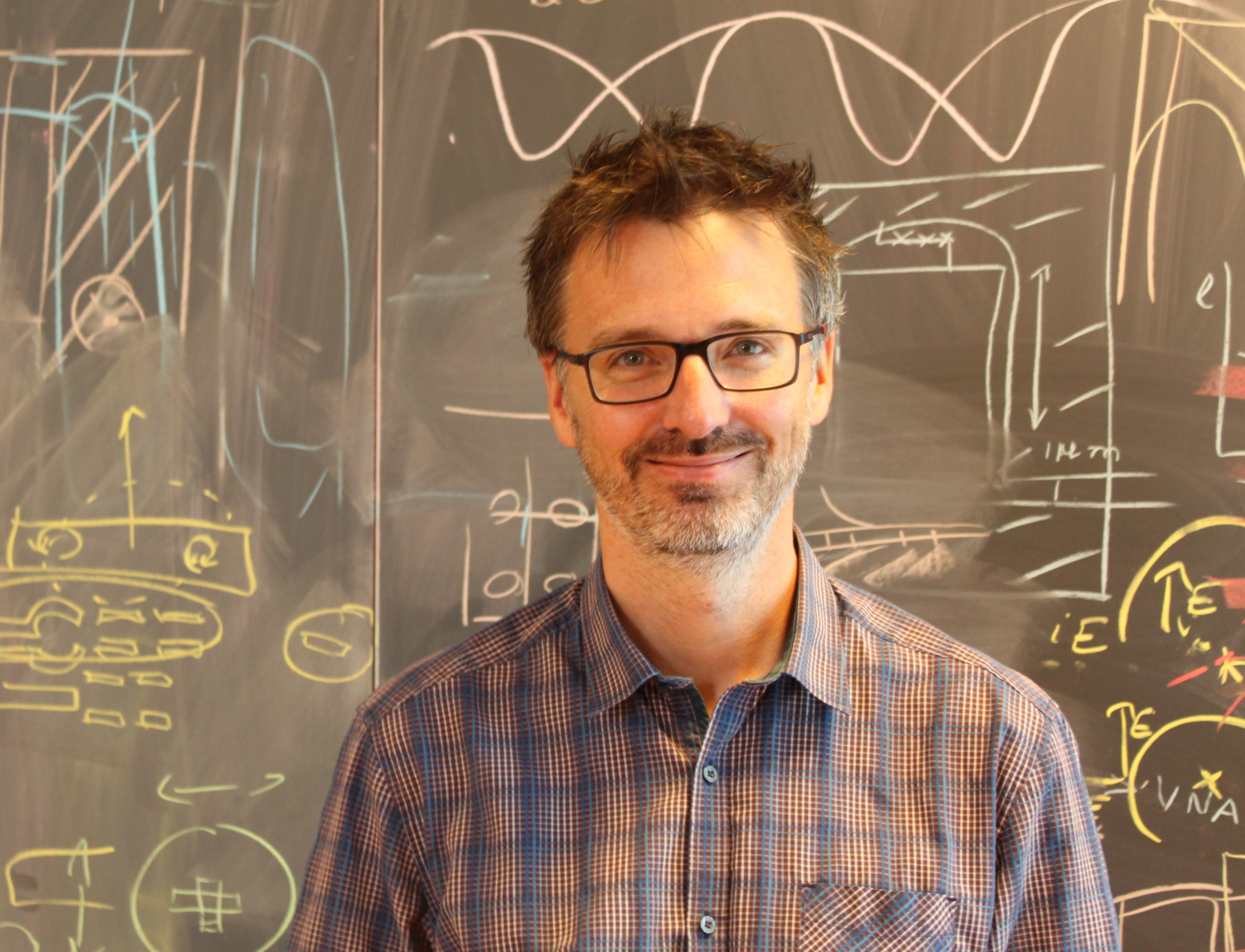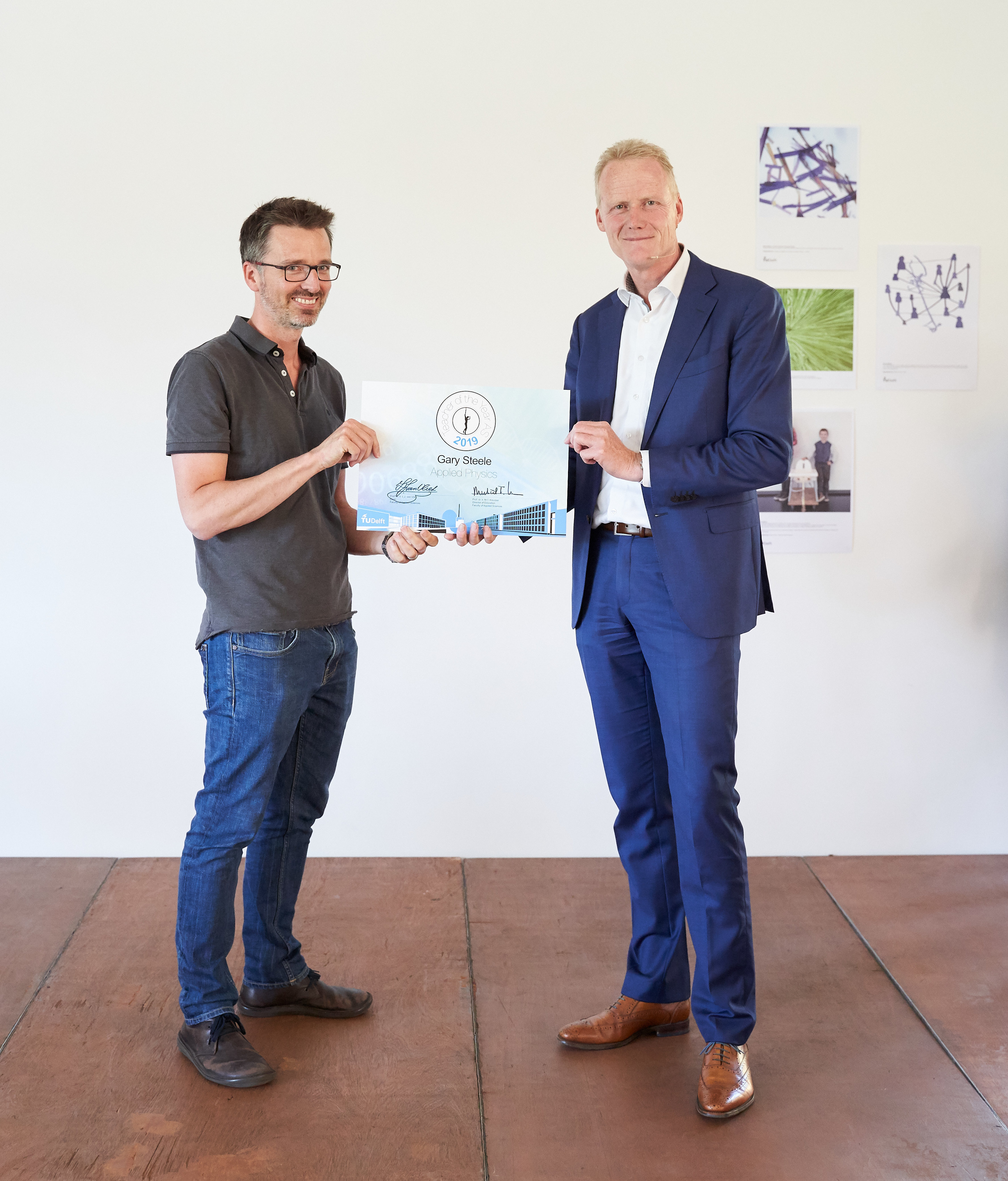Teacher of the Year Gary Steele learns from his own lectures
His infectious enthusiasm, clarity and good examples are just a few of the reasons for his election as TNW's Teacher of the Year (TN/AP). Gary Steele is pleasantly surprised. "This is great feedback. It is important to know how students experience their education, so that you can make the lectures better and better."
"Teaching provides a better understanding of science. I need to be able to explain my field to others and that gives me new insights every time. During my studies, my thesis supervisor challenged me to look beyond the mathematical formulas in the books, and to develop an intuitive understanding of what actually happens in a physical process. That is what I am trying to convey to my students now, by connecting even very abstract teaching material with concrete examples."
Bringing students along
"One of the best things about teaching is to see students discover the profession every year. To take them into this special world and at the same time make myself sharper." Still, Gary makes some small comments about Dutch education. "With my North American background after all these years, I am still stunned that only a third of the students come to college or exams, and that a six is enough. Sometimes we could set the bar a little higher, for example by counting assignments outside the examination. You don't just learn a week before the exam, it's a continuous process of learning to understand something, also by asking questions.
Dialogue important
It's the discussions that are important to Gary. "I always ask questions to challenge students. In small master groups a conversation is easier. But even in large bachelor's lectures, I want students to use these questions to think further, so that they can gain insight into science. A dialogue is also essential for the quality of teaching. "Don't underestimate the importance of listening. You can give a super awesome lecture, but if students get stuck in the material, it's of no use. I want to understand what they don't understand. I really appreciate it when students take the trouble to complete the evaluation. Sometimes their suggestions are impractical or they are wrong, but all the insights help me to improve my lectures and make students enthusiastic about science."
***
Also read the interviews with Martin Bruggink, Pascale Daran and Ferdinand Grozema.

